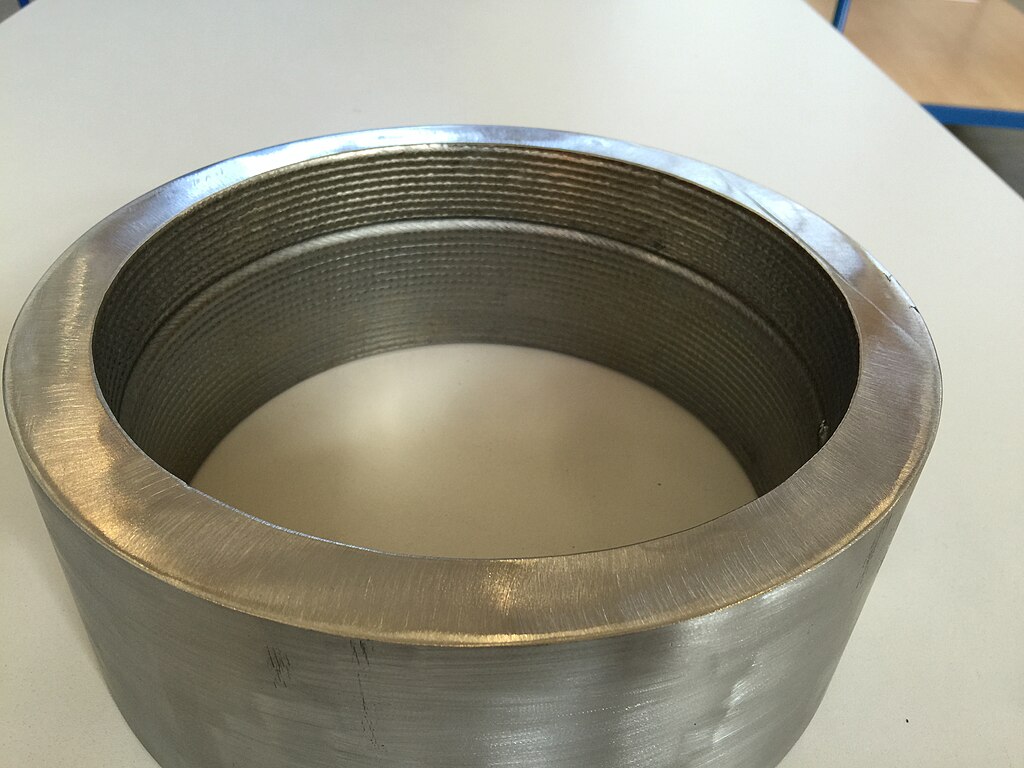A Guide to Purchasing Inconel: Tips and Considerations

Inconel® is a family of nickel-chromium superalloys known for its high strength, corrosion resistance, and oxidation resistance at high temperatures. Well-suited for demanding applications, Inconel alloys typically comprise 50-70% nickel, 15-25% chromium, and other elements, including iron, cobalt, molybdenum, and tungsten. The specific composition of an Inconel alloy depends on its intended application.
Inconel’s unique properties make it a “go-to” material for applications in numerous industries, including aerospace, nuclear, food, chemical processing, oil and gas, power generation, and medical devices. You can machine Inconel using various methods, including turning, milling, drilling, and grinding. Inconel shouldn’t be confused with Incoloy. Inconel has a higher nickel content, while Incoloy has a higher iron content.
Typical applications of Inconel are aircraft engines, rocket engines, and other aerospace components, oil and gas drilling and production apparatus, and gas turbines and other power generation equipment. Inconel is also ideal for medical implants and surgical instruments because of its biocompatibility and corrosion resistance, medical devices, automotive components, and food processing and heat treatment equipment.
Tips and Considerations when Purchasing Inconel
Inconel is valuable but relatively expensive. So, you want to get everything right when purchasing it. The tips and considerations below can help you choose a suitable alloy for your application and the right quantity:
- Inconel grades — The grade depends on the application’s requirements. Some popular Inconel alloys include Inconel 600, Inconel 617, and Inconel 625, known for their excellent corrosion resistance and strength at high temperatures. Other popular grades are Inconel X-750, Inconel 718 and Inconel 601, a modified version of Inconel 600 with improved creep resistance.
- Quantity and sizing — Some key factors you’ll need to consider are the specific type of alloy, the size and shape of the components, and the manufacturing process to be used. Once you’ve reviewed all of these factors, you can start to calculate the amount of Inconel material you need to order. Order slightly more material than you think you need in case of unexpected problems.
- Quality control and testing — These procedures are critical. They ensure the material’s integrity, help identify defects in raw materials, prevent early in-service failures, and highlight problems that could occur during production. Critical quality control measures include chemical analysis, mechanical testing, and non-destructive testing. Destructive testing is ideal for evaluating the properties of the Inconel material in more detail than with NDT methods.
- Environmental considerations — Some eco-friendly options or considerations when sourcing Inconel alloys include recycled Inconel, Inconel alloys from sustainable sources, and Inconel alloys with low environmental impact. In addition to sourcing eco-friendly Inconel alloys, several other eco-friendly considerations can be taken when using Inconel, such as design for recyclability, reducing waste, and proper disposal.
- Customization options — A wide range of customization possibilities for Inconel exist. It can be cut to size using various methods to create custom-shaped parts, be alloyed with other elements to optimize specific properties, and coated with numerous materials to meet the specific needs of various applications. Emerging technologies, like additive manufacturing, allow you to create parts with complex geometries difficult to produce using traditional manufacturing methods.
- Logistics and Shipping — Choose an experienced shipper who can meet your specific needs, pack your Inconel items tightly to prevent them from shifting around during shipping, and declare the value of your shipment accurately to ensure the shipment is properly insured. Tracking your shipment enables you to correct problems. With international shipments, choose a reliable supplier, be aware of customs regulations, and consider using a freight forwarder.
- Certifications and testing — Purchasing Inconel materials certified to ASTM standards and NACE compliance ensures the materials’ quality, performance, and reliability. It’s especially critical for applications that expose the materials to harsh environments, or the material’s failure could have serious consequences. ASTM and NACE certifications can also help ensure that the materials have the desired properties and are suitable for the intended use. Some industries have regulations requiring you to use Inconel certified to ASTM or NACE standards.
Inconel: Versatile and High Performing
Inconel is a versatile, high-performance material ideal for demanding applications. It offers various benefits that can help manufacturers add value to their products and parts, including high strength and excellent heat and corrosion resistance. Inconel is often used in extreme environments where components are subjected to high heat, pressure, and mechanical loads. While employing the tips and considerations discussed above can help, choosing the right Inconel for your application can be confusing. Working closely with a reliable and knowledgeable supplier, however, can help clear up the confusion. The right supplier can help you choose the ideal Inconel alloy for your application and the correct quantity. While Inconel is relatively expensive, it justifies its cost by its superior performance and reliability in demanding applications.

 Tech Steel & Materials
Tech Steel & Materials
Comments are closed